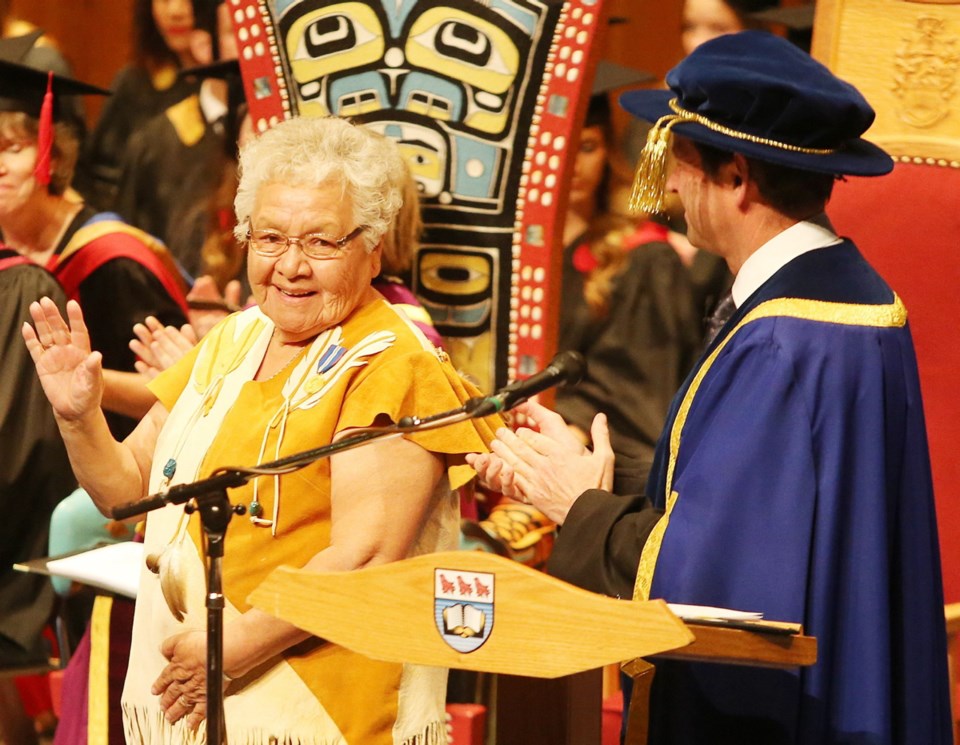They gave her a standing ovation and draped the ceremonial hood around her neck, and Ruby Dunstan stayed composed through all of it Tuesday.
But her jaw dropped and she covered her mouth with one hand when University of Victoria president Jamie Cassels finally turned, and in front of a packed house at the Farquhar Auditorium, addressed her as “Dr. Dunstan.”
The 74-year-old grandmother never expected that, never dreamed of standing on stage at a university convocation to receive an honorary degree.
“I had this thought in my head forever that I was just a dumb Indian because of the residential school,” she told the graduates and families. “And it took a long time to get rid of that thought and that feeling.
“It’s a shame that those people that did that to all of us are not here to witness something like this today, because it would be them that would be put to shame for what they did to us.”
Dunstan was just five years old when she was taken from her parents and sent to the Anglican-run St. George’s Indian Residential School in Lytton.
“I never, ever got a whupping when I was at home and then all of a sudden I was put into an environment where whupping was the thing,” she said in an interview before the ceremony. “When I tried to fight back, they gave it to me worse.”
She was hit for speaking her language, for stepping out of line, for being too rebellious. When she was nine, she was sexually abused by a supervisor, who preyed on her until she fled the school at 13.
“There was nobody around that you could talk to,” she said. “Everybody thought you were crazy if you talked about being raped or sexually abused.”
Dunstan emerged from that “hell” scarred, but unbroken. Her abuser died before she could bring him to justice. But, as a social worker, Dunstan helped other residential-school survivors come forward to tell their stories long before there was a Truth and Reconciliation Commission.
“I think Ruby came out of that fighting,” said friend and UVic history professor Wendy Wickwire.
“A lot of people sort of went quiet about that experience. Ruby brought it to the surface.”
She also became the first female chief of the Lytton First Nation and led the fight against clear-cut logging in the Stein Valley.
In the end, the provincial government moved to protect the watershed and create the Stein Valley Nlaka’pamux Heritage Provincial Park, co-managed by the First Nation and B.C. Parks.
Dunstan also turned her sights on education, helping establish the band-operated Stein Valley Nlaka’pamux School on the site of the former residential school. The K-12 school opened in 2009; Dunstan is school board president. On Tuesday, students and staff at the school gathered around a big-screen TV in the library to watch the livestream broadcast of Dunstan receiving her honorary degree.
The students sat quietly and then burst into applause along with the crowd in Victoria, school board treasurer Mindy Stewart said in an interview from Lytton. “Most of us on the staff, it brought tears to us.”
Dunstan got choked up, too, thinking of the students, and said she hopes her story teaches them a bit about who they are, that they are a resilient people, and they should hold their heads high.
“I always tell the kids, ‘If you believe you have a right, then you stand up and fight for it. Nobody else is going to do it for you.’ ”



